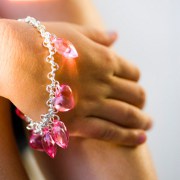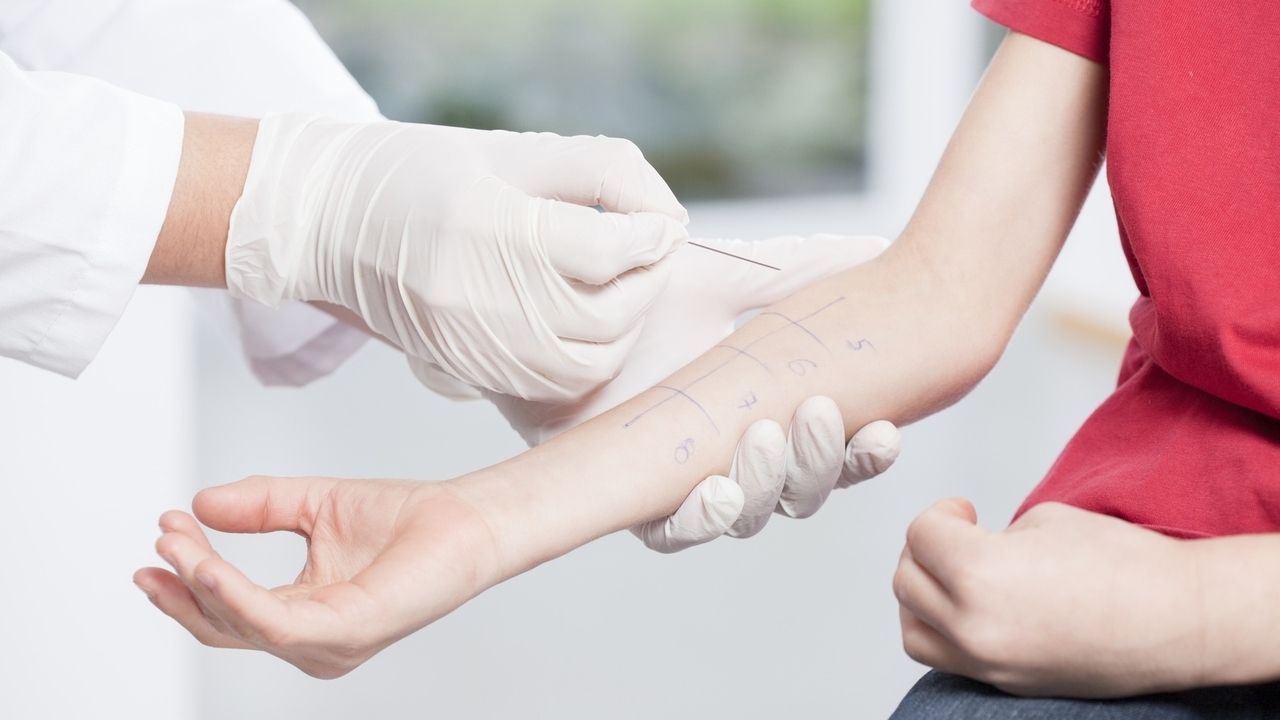 Photo: Getty Images
Photo: Getty Images
If you get an itchy rash on your skin after wearing certain pieces of jewelry or after coming in contact with certain metal objects, you may be allergic to the metal nickel. Between 10 and 15 percent of all Americans and more than 30 million people world-wide are allergic to nickel, which is found in many everyday objects including jewelry, watch bands, and piercings. Scientists at Brigham and Women’s Hospital believe they may have found a way to use nanoparticles to prevent the metal from causing an allergic reaction.
An allergic reaction occurs when the immune system reacts to something as though it was a threat to the body even though it is really harmless. The cause of the allergy is known as the allergen. In the case of nickel, an allergic reaction usually builds up after repeated contact with the metal. Symptoms of nickel allergy include:
• Skin rashes
• Itching, which may be mild or severe
• Red color on the skin in the affected area
• Dry patches of skin that may look like the skin was burned
• Blisters
Many common objects are made from nickel and can trigger an allergic reaction including:
• Jewelry including body piercings, rings, necklaces, clasps, and watchbands
• Fasteners on clothing including zippers, snaps, bra hooks, and belt buckles
• Eyeglass frames
• Kitchen utensils
• Dental fillings
• Tools
• Keys
• Cell phones
• Medical implants such as artificial heart valves
Nickel can also be found in drinking water and in some foods including oatmeal, chocolate, nuts, beans, and dried fruit. In addition, any canned food may contain some nickel.
Researchers at Brigham and Women’s Hospital, which is a teaching affiliate of the Harvard Medical School, believe that nanoparticles may be the solution for preventing nickel allergy on the skin. Nanoparticles are tiny particles that cannot be seen with the naked eye. Approximately two thousand nanoparticles lined up together would be the same width as a piece of human hair. Some nanoparticles exist in nature while others are engineered in laboratories to accomplish specific functions. Scientists are studying the unique properties of nanoparticles to understand how very tiny particles can react differently than large pieces of the same substance.
In the case of nickel allergy, the researchers used nanoparticles of calcium in a lotion or cream to create a barrier between the nickel and the skin. The nanoparticles are designed to be small enough to capture the nickel particles but large enough so they cannot penetrate into the skin. They work by trapping the particles of nickel before the nickel comes in contact with the skin. Washing off the cream also washes off the particles of nickel. The nanoparticles used had already been approved by the U.S. Food and Drug Administration.
In the past, the only way to avoid nickel allergy was to try to avoid the metal. People sometimes used nail polish or other substances to provide a barrier between jewelry and the skin, but this was not always effective or practical. The researchers believe their nanoparticle cream will soon provide relief for nickel allergy sufferers.
Sources:
Science Daily
National Nanotechnology Initiative
Mayo Clinic





Add a CommentComments
There are no comments yet. Be the first one and get the conversation started!